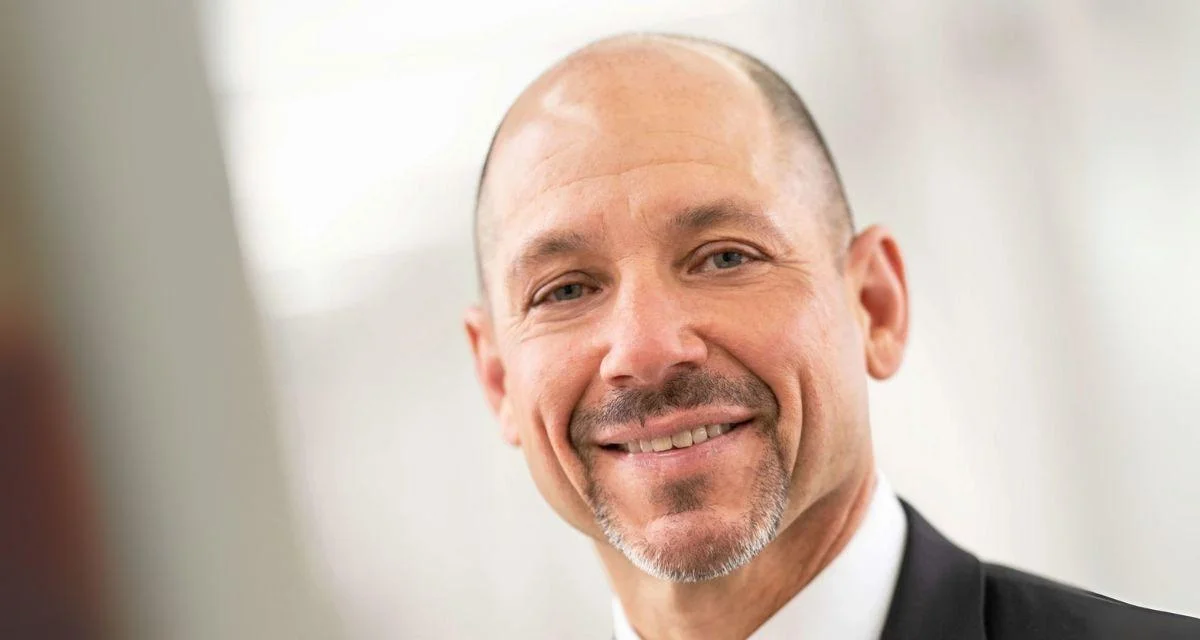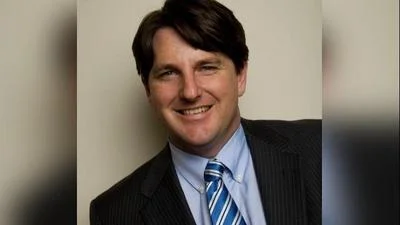Alan Kaplan, Chief Executive Officer | U. of Wisconsin Hospital and Clinics
Alan Kaplan, Chief Executive Officer | U. of Wisconsin Hospital and Clinics
Paul Lynch, a Madison resident and avid traveler, was diagnosed with uveal melanoma in October 2021 after noticing vision problems while working at the Minneapolis airport. Initially attributing his symptoms to minor issues, Lynch’s diagnosis came following a referral from his primary care doctor to an optometrist.
“I’d see circles or spots in my eyes, or I’d be sensitive to bright light, but I didn’t think too much of it,” Lynch said. “I mentioned it to my doctor when I went in for a knee injury, and I quickly went from my primary care doctor to an optometrist who told me I had ocular cancer.”
Lynch received treatment at UW Health | Carbone Cancer Center where Dr. Michael Altaweel implanted a radioactive plaque at the tumor site. “Paul had an excellent response and even retained his 20/20 vision, which is very uncommon,” said Altaweel, who is also a professor of ophthalmology and vision sciences at the University of Wisconsin School of Medicine and Public Health.
A biopsy revealed that Lynch had an aggressive subtype of uveal melanoma. Dr. Vincent Ma, medical oncologist at UW Carbone and assistant professor of medicine at the UW School of Medicine and Public Health, explained that uveal melanoma is rare—diagnosed in only 2,000 to 3,000 patients per year in the United States—but remains the most common form of eye cancer. The disease often develops in the middle layer of the eye called the uveal tract.
After his initial treatment, Lynch continued traveling—a passion he developed growing up in a large family that vacationed by camper. He sold his condo and purchased a motorhome in December 2023.
However, routine testing in June 2024 showed that his cancer had spread to his liver. “For aggressive subtypes of uveal melanoma, there is a high chance it can return and spread to other organs,” Ma said. “When that happens, it almost always spreads to the liver.”
Ma noted that effective treatments for metastatic uveal melanoma are limited: “There is one treatment for Stage 4 uveal melanoma for patients with a specific immune genotype, but Paul did not have that,” he said. “The alternative option is immunotherapy with nivolumab and ipilimumab, but we haven’t seen a lot of success with that treatment.”
Lynch became eligible for Hepzato therapy—a procedure where chemotherapy drug melphalan is delivered directly into the hepatic artery targeting only liver tumors. This approach allows high concentrations of chemotherapy within the organ while limiting exposure elsewhere in the body; studies show response rates between 30-40% among patients receiving this therapy.
Lynch completed six rounds by December 2024 with positive results: “I was very happy to see Paul experience disease control with minimal side effects,” Ma said. “After he completed the treatment, he had no evidence of active disease in his liver.”
Hepzato was approved by the Food and Drug Administration (FDA) in August 2023—less than a year before Lynch required it—and UW Health | Carbone Cancer Center was among its first dozen providers nationwide as well as currently being Wisconsin’s sole provider.
“I don’t know if I’d be in the place I am today without this,” Lynch said. “I’m grateful not just that it exists, but that I lived near a great cancer center that could offer it to me.”
Genetic factors contributed to Lynch’s risk; lighter skin or eye color can also increase susceptibility according to experts. After learning about his genetic predisposition through testing post-diagnosis—which revealed elevated risk—he encouraged family members to undergo similar screenings.
“When I took the genetic test to learn if I was predisposed to this or other types of cancer, I saw I had the elevated risk of ocular melanoma,” he said. “I wish I’d known that all my life, but I am glad I know now.”
Now celebrating milestones such as his 60th birthday surrounded by loved ones—and planning future trips—Lynch continues prioritizing travel: “Time to put some miles on the big rig and spend more time doing what I love,” he said.






 Alerts Sign-up
Alerts Sign-up